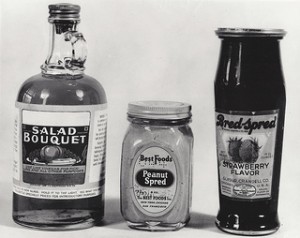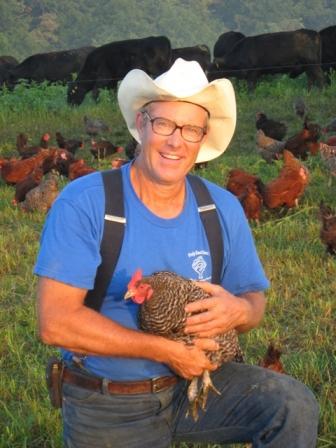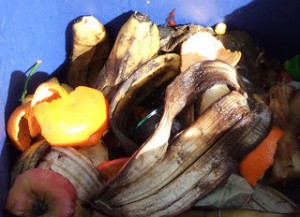Joel Salatin Explains Why This Ain’t Normal!
Sponsored by Eden Organics
What Does Real Food Look Like?
Thanks to decades of clever mass marketing campaigns, the average person has become completely disconnected with how our food is grown and also what real food should look like. With the agro-chemical companies chiming away that “there is going to be a food shortage if we don’t produce more food and decrease the world population in order for everyone to survive,” the reality is most people do not have a clue as to how their food is produced, where it is grown or how it is grown.

Most people have no idea how their food is grown, much less who grows it!
The Disconnection Factor
Processed foods, initially created with the intention to save time, are simply not a healthy choice. Some of these processed, ready to “heat and serve” products made with “real chicken” are breaded, seasoned and disguised in all sorts of geometrical shapes so that children will be encouraged to eat them. Meanwhile, the average child who primarily consumes this type of food has no idea what a chicken looks like, sounds like or the fact that chickens are smart, loving beings.

As Frank Purdue used to say, parts is parts, but are they safe to eat? (Photo:Ludovic Bertron)
People are so disconnected to food! Today, you can buy chicken that is boneless, skinless, know nothing about it other than that it is heat and serve.
When I asked Joel Salatin about the growing he said, “As a culture, we essentially abdicated our responsibilities and kind of by faith we gave over this food responsibility to others over several couple of decades to where we are at the point now in our country where we have twice as many people incarcerated in prison as we have growing our food, which is again, a very aberrant civilizational statistic. It’s the first time it’s ever been done.
We are absolutely a guinea pig culture, flirting with abnormalities on a scale that no civilization has ever even thought of and the fact is you cannot have an integrity food system when you have the level of disengagement and lack of participation that we have in the culture.”
Listen To The Interview:
It takes a true organic farmer to really get the point across about the benefits of growing organics and eating organics. Joel Salatin is an organic farmer from Virginia who talks about the problems he sees not only as an organic farmer but as a consumer of organic foods. In his best-selling book, Folks, This Ain’t Normal: A Farmer’s Advice for Happier Hens, Healthier People, and a Better World, he takes us into his world as he talks about how our food is produced and why we ought to take a closer look at where and how our food is produced.
Click on the video below to listen to this segment of The Organic View Radio Show, as host, June Stoyer is joined by special guest Joel Salatin! Click this link to use our free podcast player to hear the interview!
Food Labeling & Food Integrity: What Happened?
Food labeling is very controversial for many reasons. While some people think it is the big corporations out to get us, the reality is, the laws are designed to benefit the large scale producers. How should consumers view labels and what should consumers do beyond labels?
During the Great Depression, a flood of inferior food products threatened the integrity of the food supply. The 1938 Food, Drug, and Cosmetic Act set legal standards for most staple foods. In the year 2013, anywhere in the United States, it is still not mandatory to label products containing GMO’s on the label. Who are these laws protecting now? Have the laws intended to initially protect consumers changed to protect manufacturers?

Salad Bouquet a weakened vinegar labeled “for use like vinegar”; Peanut Spred had few peanuts and much lard; and Bred-Spread had no strawberries, just pectin, dye, flavoring and hayseeds to simulate strawberry seeds.
Joel Salatin continued the conversation by saying,”the whole labeling issue is monstrous. We’ve never claimed anything. We just say eggs, T-bone steak, ground beef, pork chops. We don’t claim anything. Now we have to put these nutritional labels on. Which of course would cost several hundreds of dollars per item. So we can’t afford, as a small farm, nutritional labels that are accurate to what we produce but the USDA says, that’s not a problem, you can use the generic label. So, we slap the generic label on, which is in many cases 300-even 500% off of our Riboflavin or folic acid or omega 3, omega 6 ratios.

Do food labels really benefit consumers? When is a salad more than a salad?
Our label on our food that we have to put on by law, is as wrong as night and day, doesn’t bear any semblance to the food that we produce but the labeling laws, in order to customize them so that they are actually accurate to our food would cost us thousands of dollars, which we don’t have and so the whole thing is just a joke.
They (industry) are making it so that it is impossible to own and operate a small farm or what the big picture is, they are looking to wipe you (small farmers) out. This is business. This is the cost of operations. This is what is being forced upon a small business owner who owns and operates a farm. Period.
Generally speaking… food laws, whether they are food safety laws, whether they are labeling laws, whether they are infrastructure laws, whatever the regulations. The zoning, whatever they are, they are always prejudicial toward the biggest players and against the small players. The regulations are not scalable. They are scalable up very very well but they don’t scale down. What happens is every time we have a revamping of food safety laws, of the regulatory structure you always see the small players get inordinate punches on the chin, because the regulations are not scalable. That’s what people need to understand. That’s one ready why I advocate food choice. I think it is an amazing thing in our country now that we collectively believe that it is perfectly safe to feed your kids twinkles, Cocoa puffs, and Mountain Dew but if you feed raw milk, or compost grown tomatoes or Aunt Matilda’s homemade pickles, those are hazardous substances. The health and sickness statistics certainly don’t bear that out and yet that’s where we’ve come to.”
Responsibility For Your Food = Responsibility For Your Health
You write about how people need to take responsibility. How can we reconnect ourselves and our families?

Joel Salatin Photo Credit Teresa Salatin
Joel Salatin replied, “you cannot have people taking responsibility for the visceral parts of their lives without putting attention on that in the home. Homes used to be the centerpiece of everything that was important in life. Now home has become simply a pit stop between everything that’s important in life that happens outside. This is part of this crisis of participation that we don’t even participate in our family lives or our home lives anymore. All of our participation is outside.
Eating together as a family, cooking together. In the book, I talk about all of the learning possibilities (a kitchen can almost become a chemistry lab). It can become a learning center. Then beyond that, take them out to a farm. People don’t bat an eye at Bambi and Thumper, Disney vacations, or Caribbean cruises or summer camps and that entails a lot of money and a lot of time. Take the year off from that, take that budget of time and money that you would have normally spent recreationally like that and go find your farm treasures, your food treasures in your community.
What will happen then is that you will gradually build an informed platform from which you can make proper decisions. You will begin to learn (that’s good farming, that’s bad farming.) You will be able to smell (that’s good food, that’s bad food) You will be able to see (that’s good food, that’s bad food). As you develop that experiential immersion in food from farm all the way to table, obviously, with kids, more is caught than taught. If we see that something is important, kids usually think it is important too. Once they start tasting it and seeing the difference…then, they are ready for it.
It does make a significant difference impact and effects how they not only live their lives but also their food choices. If they (kids)have the respect for the land and if they have the respect for nature, that is going to really make a significant impact in their overall disposition throughout the rest of their lives.”
Crisis Of Participation
The children really are our future. Whether you are a parent, a responsible adult or just someone who wants to make a positive change, we have to set the example for the younger generations.
“Once you are taught the knowledge, especially children that possess that knowledge they take that with them for the rest of their lives. It does make a significant impact and affects how they not only live their lives but also their food choices and how they carry themselves throughout their lives.
If they have the respect for the land and if they have the respect for nature, that is going to really make a significant impact in their overall disposition throughout the rest of their lives,” said Joel Salatin.
Crisis Motivation
When people do pay attention it is usually when they have a either a personal health crisis or someone that they love has a health crisis. That is when the light bulb goes off and then they start paying attention to not only where is the food grown, how is the food is grown, but who is growing it and what methods are they using to grow it.
According to Joel Salatin, “a healthy 50% of the visitors that come to our farm or take our seminars are conservative homeschoolers who opted out of the institutional education system, found it soul satisfying and said, well, good grief! What else am I missing? The whole idea to opt out of the mainstream thinking whether it’s investment, education, recreation, food, medical. What happens is there is one drip. Maybe, for some people it is that they bite the bullet and went to a chiropractor instead of, for example, a medical doctor. Then maybe the next thing you know they are going to a homeopath. Boy, what happens is when a person opts out of the conventional thinking and finds it beneficial, well, then they are screaming to find other things.
Positive changes that you can really taste and get a hold of are magnetic. They attract you to take the next step.”
Real Food Rots
Have you ever wondered about what preservatives do to our food? Anything that has a shelf life for several years is not as nature intended it to be.

Real food rots!
Joel Salatin explained, “when food gets processed,when you take the ingredients in DiGiornio’s frozen pizza for example, frozen microwavable pizza, that pizza becomes a totally different critter than the raw ingredients that went into it. That’s true for practically everything from chicken nuggets to whatever to cheerios. I remember reading well decades ago reading about Wheaties and that you could take wheaties and feed rats and the would die but if you took the raw ingredients that were listed on the label and feed rats, they were perfectly healthy.
Living food spoils precisely because it IS alive! The fact is, there are a lot of things that are done to food. Take for example, Velveeta cheese. Cheese that squirts out of a tube? Folks, this ain’t normal! Good food should rot! If you take Velveeta cheese and set it on your table and then get some real cheese from somebody, in 24 hours, the real cheese will have a little mold on it. I don’t know how long Velveeta will sit there with no mold but it’s years!”









